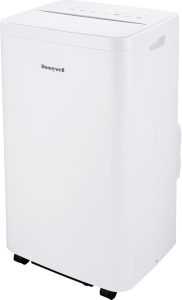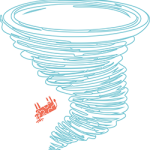We whine and cry all winter that it’s cold, have a few nice days of spring then here comes the heat!
Extreme heat is no fun
Extreme heat is a period of high heat and humidity with temperatures above 90 degrees for at least two to three days. In extreme heat your body works extra hard to maintain a normal temperature, which can lead to death. Extreme heat is responsible for the highest number of annual deaths among all weather-related hazards.
 I live in an area of increasing temperatures and climate change. Our home does not have Air conditioning. My nephew gave me his nice honey well portable AC when his family moved to Virginia. While it wont cool the whole house it is very helpful!
I live in an area of increasing temperatures and climate change. Our home does not have Air conditioning. My nephew gave me his nice honey well portable AC when his family moved to Virginia. While it wont cool the whole house it is very helpful!Older adults, children and people with certain illnesses and chronic conditions are at greater risk from extreme heat.
Humidity increases the feeling of heat.
- Never leave people or pets in a closed car on a warm day.
- Look in the backseat and make sure no children are there before leaving the vehicle.
- Put a personal item like a cellphone or briefcase in the backseat with your child so you’ll have to access that area when you arrive at your destination.
- Keep your car locked when it is parked. This can prevent a curious child from entering or getting trapped inside on a hot day. Keep your car keys out of children’s reach to prevent them from unlocking it and entering.
- If air conditioning is not available in your home find a cooling option such as public spaces or shelter.
- Take cool showers or baths.
- Wear loose, lightweight, light-colored clothing.
- Use your oven less to help reduce the temperature in your home.
- If you’re outside, find shade. Wear a hat wide enough to protect your face.
- Drink plenty of fluids to stay hydrated.
- Avoid high-energy activities or work outdoors, during midday heat, if possible.
- Check on family members, older adults and neighbors.
- Watch for heat cramps, heat exhaustion and heat stroke.
- Consider pet safety. If they are outside, make sure they have plenty of cool water and access to comfortable shade. Asphalt and dark pavement can be very hot to your pet’s feet.
- Heat waves may cause you to lose power. Visit Your utility companies to see about planned outages and to learn how to stay safe.
HEAT EXHAUSTION
Heavy sweating, paleness, muscle cramps, tiredness, weakness, fast or weak pulse, dizziness, headache, fainting, nausea, vomiting
HEAT CRAMPS
Muscle pains or spasms in the stomach, arms or legs
HEAT STROKE
Extremely high body temperature (above 103 degrees F) taken orally
Red, hot and dry skin with no sweat
Rapid, strong pulse
Dizziness, confusion or unconsciousness If you suspect heat stroke, call 9-1-1 or get the person to a hospital immediately.
